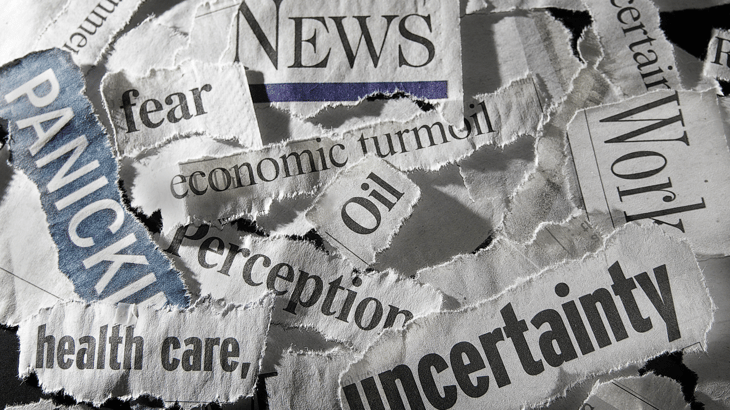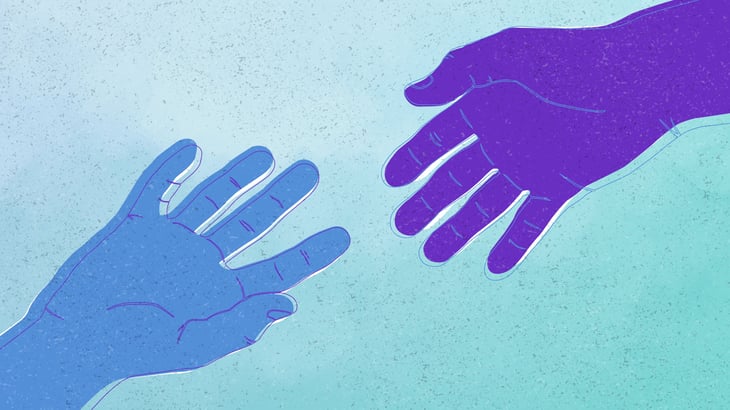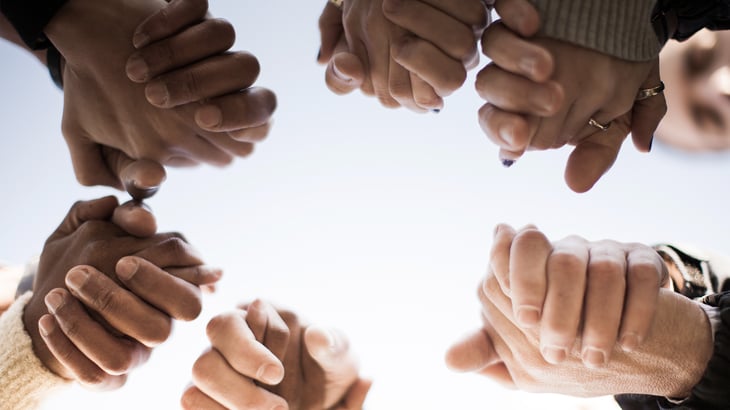Tips for Christian Parents Tackling Tough Topics with Your Kids
“Have you talked about current events with your kids?”
I posted a poll asking this question on Instagram a few days after the initial reports of the ongoing conflict between Russia and Ukraine. The results were more split than I anticipated.
How Christians Can Respond to Cancel Culture
Cancel culture is a hot topic right now. It seems like a celebrity is being “canceled” each day for many things: actions, words said, pictures posted. The following is a post in dialogue with a section on cancel culture in Redeeming Technology: A Christian Approach to Healthy Digital Habits.
Serve Your Neighbors in the Continuation of a Pandemic
We live in a weird time—not only are we still in the midst of a global pandemic, but we also are living in an in-between time.
Some churches are open, others are not. Some people are back at work, others are not. Living in the in-between means everyone is at a different point, making it hard to serve one another. Your elderly parents might be vaccinated, but you might still not be able to see them. Your church might be open, but you might not feel comfortable attending services in person yet.
No matter what point you’re at, you can still serve your neighbor! Here are some situations where you can serve your neighbor in the current in-between time.
Why Lutherans Should Celebrate Black History Month
I had a great conversation with a brother in Christ about Black History Month. He asked me two sincerely heartfelt questions: Why and how should a Lutheran church celebrate Black History Month?
Developing a Circle of Trust
In previous posts, I have approached the concept of race relations from a theoretical point of view. However, in this post, I want to give you some practical ideas to help make the task ahead seem less daunting. When we work with congregations who ask us for the magic ingredient for reaching their community, we have just one word for them. If you want to know the secret to being relevant in your community, come closer and I will tell you. A little closer. The secret is RELATIONSHIPS!
John Maxwell once said about leadership, “Everything rises and falls on leadership.” Any hope we have of overcoming racial tension, any hope of seeing beyond color, is based on our ability to build authentic relationships. On to the task at hand: how do you develop a circle of trust? I believe there are five key elements.
A Sea of Broken Dreams
“I will rejoice in Jerusalem and be glad in My people; no more shall be heard in it the sound of weeping and the cry of distress.” Isaiah 65:19
As I look at the landscape in our country today, especially when it comes to race in America, what I see is a sea of broken dreams. For those people who look at their life with regret and pain, this post is for you. Usually, I leave the good part for the clincher, but I want you to hear this upfront: God can restore your broken past, and He helps you overcome your broken dreams.
The Real Enemy Feeding Racism in America
Tonto and the Lone Ranger were riding through a canyon together when all of a sudden both sides were filled with Indian warriors on horses, dressed for battle. The Lone Ranger turned to Tonto and asked, “What are we going to do?” Tonto replied, “What do you mean ‘we,’ white man?” (In Search of Unity, Edward Dobson, pp. 20–27)
A funny illustration, but there is some scary truth contained here. The attitude of “I am with you until trouble comes” is destructive for race relations. What is causing the division?
Racial Healing Begins with Recognizing Our Neighbor
I ran across a fantastic quote by Dr. Martin Luther King Jr.:
“The first question which the priest and the Levite asked was: ‘If I stop to help this man, what will happen to me?’ But…the good Samaritan reversed the question: ‘If I do not stop to help this man, what will happen to him?”
The Nation's Cry for Peace and Justice
This article appeared on The Light Breaks Through and has been published here with permission.
As you try to process all that is going on in our country, here are some thoughts. Do not let your opinion about the riots exploding around the country taint your opinion of what happened to George Floyd. Notice I called them riots and not protests.
Faithfully Caring for the LGBT Community as Christians
Perhaps the biggest public debates of our time concern gender and sexuality. There are a lot of strong emotions on every side, and there aren’t always simple solutions. I’m certain by addressing this topic at all I’m probably going to upset some people, so let me start by apologizing for any offense I’m going to cause. I don’t hate you, and, honestly, I’m not even really going to be talking about you in particular. I don’t much believe in singling out individuals, unless they’re me. Truth be told, I’d love to buy you a drink, talk this whole mess through and see what sorts of common ground we can find, because I truly do believe there’s plenty to be found.






















